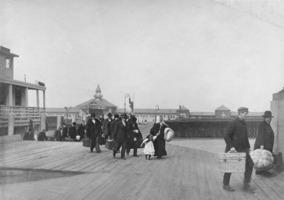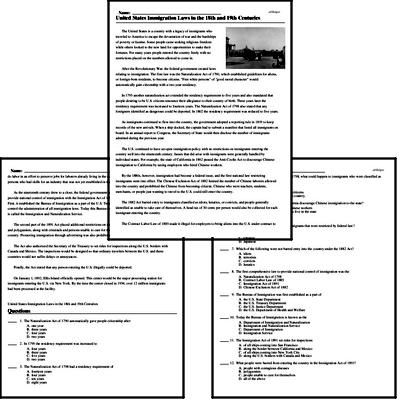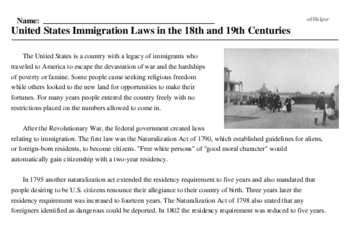United States Immigration Laws in the 18th and 19th Centuries
The United States is a country with a legacy of immigrants who traveled to America to escape the devastation of war and the hardships of poverty or famine. Some people came seeking religious freedom while others looked to the new land for opportunities to make their fortunes. For many years people entered the country freely with no restrictions placed on the numbers allowed to come in.
After the Revolutionary War, the federal government created laws relating to immigration. The first law was the Naturalization Act of 1790, which established guidelines for aliens, or foreign-born residents, to become citizens. "Free white persons" of "good moral character" would automatically gain citizenship with a two-year residency.
In 1795 another naturalization act extended the residency requirement to five years and also mandated that people desiring to be U.S. citizens renounce their allegiance to their country of birth. Three years later the residency requirement was increased to fourteen years. The Naturalization Act of 1798 also stated that any foreigners identified as dangerous could be deported. In 1802 the residency requirement was reduced to five years.
As immigrants continued to flow into the country, the government adopted a reporting rule in 1819 to keep records of the new arrivals. When a ship docked, the captain had to submit a manifest that listed all immigrants on board. In an annual report to Congress, the Secretary of State would then disclose the number of immigrants admitted during the previous year.
The U.S. continued to have an open immigration policy with no restrictions on immigrants entering the country well into the nineteenth century. Issues that did arise with immigrants were generally handled by individual states. For example, the state of California in 1862 passed the Anti-Coolie Act to discourage Chinese immigration to California by taxing employers who hired Chinese workers.




